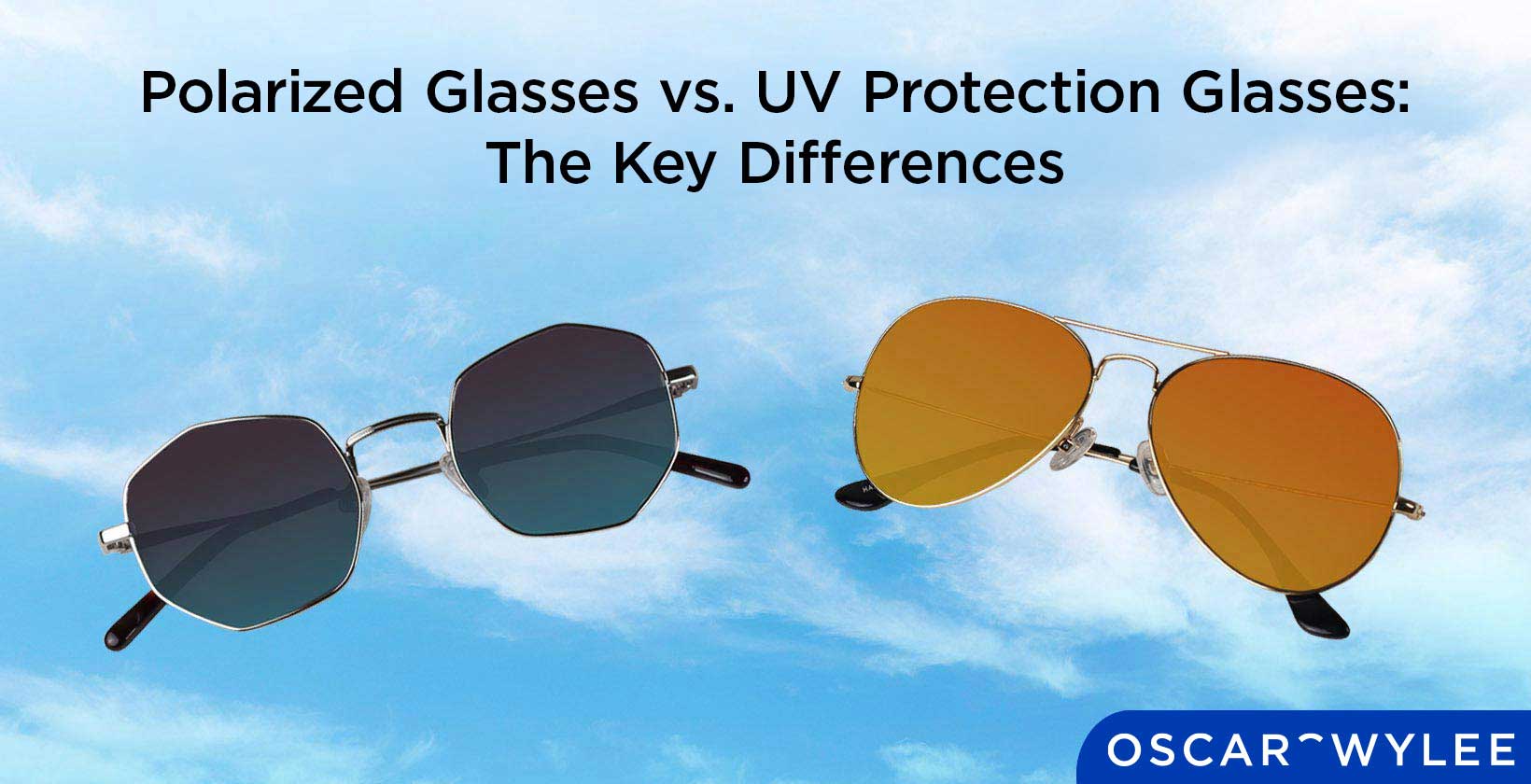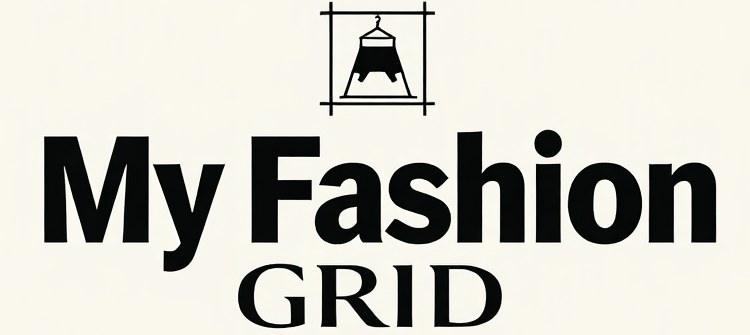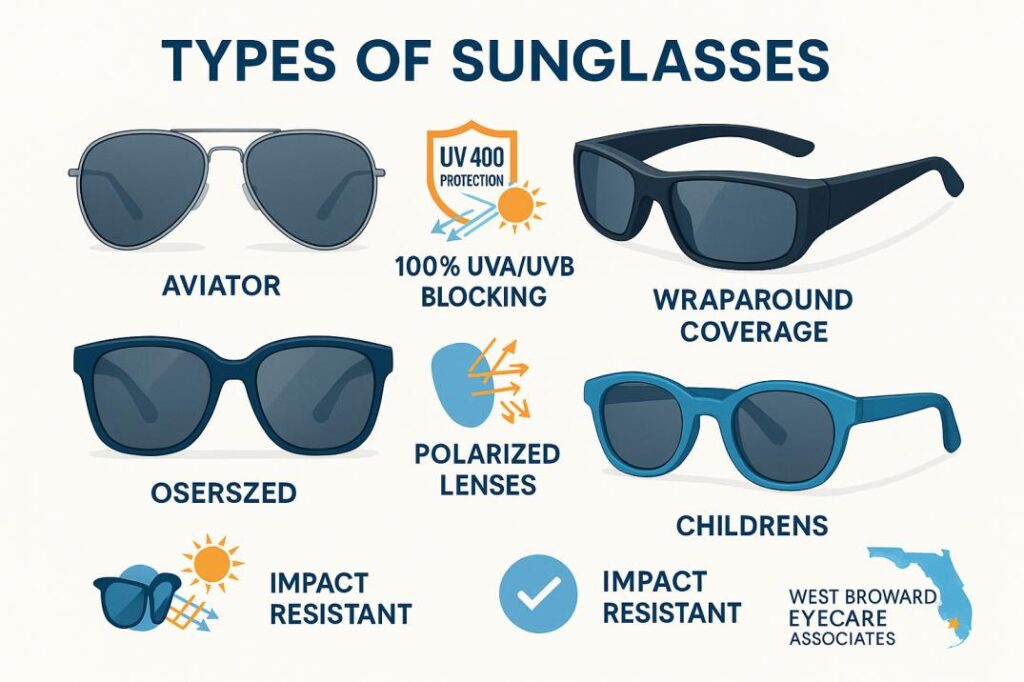You probably wear sunglasses to look cool and keep the sun out of your eyes. But have you ever stopped to wonder if they actually protect your eyes from harmful UV rays?
Not all sunglasses are created equal—some may leave your eyes vulnerable without you even knowing it. You’ll learn simple and effective ways to tell if your sunglasses truly offer UV protection. By the end, you’ll be able to pick the right pair that keeps your eyes safe and comfortable every time you step outside.
Keep reading to protect your vision and avoid costly eye problems down the road.

Credit: oscarwylee.ca
Signs Of Uv Protection On Sunglasses
Check for labelslike “UV 400” or “100% UV Protection.” These mean the sunglasses block all harmful rays. Look for certificationsfrom trusted bodies such as ANSI or CE. They prove the glasses meet safety standards.
Common terms include:
- UV 400:Blocks UVA and UVB rays up to 400 nanometers.
- 100% UV Protection:Ensures full protection from UV rays.
- ANSI Z80.3:American safety standard for sunglasses.
- CE Mark:European safety certification.
Labels on the inside arms or tags show these details. Avoid sunglasses without any clear UV info. Dark lenses alone do not mean UV protection. Always pick sunglasses with clear UV protection signsto protect your eyes.
Differences Between Uv Protection And Polarization
Polarized lensesreduce glare from surfaces like water or roads. They work by filtering horizontal light waves. This makes vision clearer and more comfortable. UV protectionblocks harmful ultraviolet rays from the sun. It helps prevent eye damage and long-term health issues.
Polarization improves visual comfort, but it does not block UV rays. Sunglasses can be polarized without UV protection, which is not safe. UV protection is more importantbecause it shields your eyes from invisible, harmful rays that can cause cataracts or retina damage.
| Feature | Polarized Lenses | UV Protection |
|---|---|---|
| Main Function | Reduce glare | Block harmful UV rays |
| Health Benefit | Better vision comfort | Protects eye health |
| Safety | Not enough alone | Essential for sun safety |
At-home Tests For Uv Protection
Shine a blacklight flashlighton the sunglasses lens in a dark room. If the lens blocks most of the purple light, it may have UV protection. Light passing through means less protection.
The CD reflection methoduses a CD or DVD to check UV blocking. Hold the sunglasses over the shiny side of the disc under sunlight. If the lens reduces glareor reflection, it might block UV rays.
| DIY Test | What It Shows | Limitations |
|---|---|---|
| Blacklight Flashlight | Blocks or passes UV light | Not precise; only shows visible light blocking |
| CD Reflection | Reduces glare and reflection | Does not guarantee full UV protection |
DIY tests give a quick idea but are not fully reliable. Proper UV testing requires special tools and lab checks.
Risks Of Wearing Sunglasses Without Uv Protection
Fake sunglassesoften lack proper UV protection. Wearing them can cause more harm than no sunglasses at all. Dark lenses may make your pupils open wider, letting in more harmful UV rays. This increases the risk of serious eye damage.
Long exposure to UV rays can cause cataracts, macular degeneration, and photokeratitis. These conditions can lead to blurry vision or even blindness. Protecting your eyes with sunglasses that block 100% of UVA and UVB rays is crucial for eye health.
Choosing Sunglasses With Reliable Uv Protection
Trusted brands and retailersusually offer sunglasses with reliable UV protection. These brands test their products to block harmful UV rays effectively. Cheap or unknown brandsoften sell sunglasses without proper UV filters. Buying from a well-known store or brand increases the chance of good protection.
Price does not always equal protection. Some expensive sunglasses have great UV blocking, but some do not. Similarly, some affordable sunglasses can offer good UV protection if they have the right labels. Always check for UV400or 100% UV protection labels on the sunglasses. This ensures they block both UVA and UVB rays.

Credit: www.dfranklincreation.com
Additional Features To Consider
Lens color and tintaffect how much light and UV rays reach your eyes. Darker lenses do not always mean better protection. Some light tints can block UV rays well. Brown and gray tints reduce glare and improve contrast. Yellow and amber lenses help in low light but may not block UV fully.
Wraparound framescover more eye area, stopping UV rays from the sides. They help protect the skin near your eyes too. Larger frames also block more sunlight and wind. Frames that fit close to your face offer better protection than small or loose ones.
Choosing sunglasses with good lens color and wraparound designimproves eye safety. Look for these features along with UV protection labels.

Credit: www.reddit.com
Frequently Asked Questions
How Can I Test My Sunglasses For Uv Protection At Home?
Use a blacklight flashlight at home. Shine it on your sunglasses’ lenses. If little or no light passes through, they likely block UV rays.
Do Fake Sunglasses Have Uv Protection?
Fake sunglasses usually lack proper UV protection. They can let harmful rays through, increasing eye damage risk. Always choose certified sunglasses for reliable UV defense.
Are All Sunglasses Uv400?
Not all sunglasses provide UV400 protection. Always check labels or product details to ensure 100% UVA and UVB blocking.
Does 100% Uv Protection Mean Polarized?
100% UV protection means the lenses block all harmful ultraviolet rays. Polarized lenses reduce glare but don’t guarantee UV protection. UV protection and polarization serve different purposes. Choose sunglasses that specify both for full eye safety and comfort.
Conclusion
Choosing sunglasses with proper UV protection keeps your eyes safe. Always check labels or test lenses for UV blocking. Dark lenses alone do not guarantee protection. Protecting your eyes helps prevent damage and long-term issues. Use simple tests at home or buy from trusted sellers.
Clear vision and eye health go hand in hand. Wear the right sunglasses every time you step outside. Your eyes will thank you for it.

Marry Christin, a passionate fashion designer and style enthusiast. Fashion isn’t just my profession—it’s my addiction! Along with my expert team, I bring you honest reviews of the latest fashion trends, including shoes, boots, sandals, dresses, and more.

